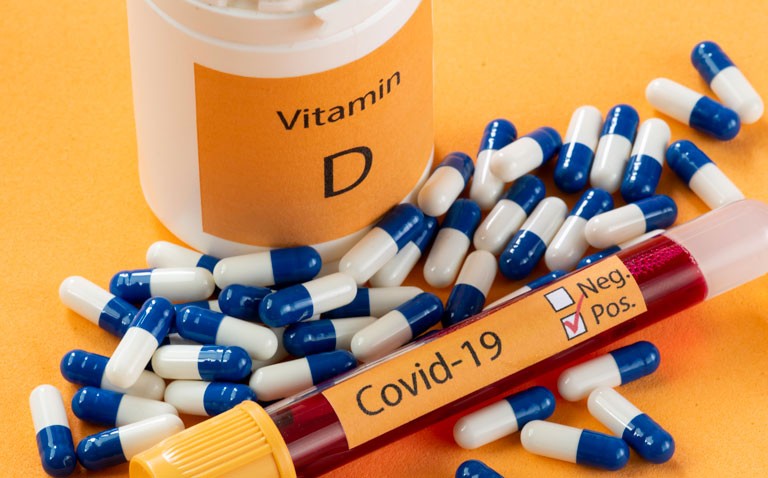Vitamin D-deficient patients are more likely to get severe COVID-19 and die compared with those with sufficient levels of the vitamin
Vitamin D-deficient individuals have been shown to be much more likely to experience severe COVID-19 and die in comparison to those with normal or sufficient levels of the vitamin. This was an important finding by researchers from the Department of Otolaryngology, Head and Neck Surgery, Galilee Medical Center, Israel.
Previous research has shown how vitamin D has a protective effect against respiratory tract infections when taken as a once daily dosage. Moreover, a 2021 systematic review which included 46 randomised controlled trials with 48,488 individuals, re-affirmed the benefits of daily supplementation with 400 –1000 IU of vitamin D for reducing the risk of acute respiratory tract infections compared with placebo.
Several studies undertaken during the COVID-19 pandemic have suggested that a vitamin D deficient status was associated with increased COVID-19 risk.
Furthermore, other data has shown how the vitamin D level is markedly low in severe COVID-19 patients although this was measured once in hospital. However, what is less clear, is the extent to which pre-infection or baseline vitamin D levels, impact on the clinical outcomes once patients become infected with COVID-19.
For the present study, the Israeli team set out to determine whether COVID-19 disease severity correlated with patient’s most recent vitamin D levels as documented in their medical records. They undertook a retrospective study of hospitalised, adult patients with a PCR-confirmed COVID-19 infection.
The team defined COVID-19 disease severity at the point of highest severity. For instance, if a patient was admitted with mild disease and which subsequently deteriorated, this would be categorised as a critical illness.
They used the most recent medical record for vitamin D status and then categorised patients as vitamin D deficient (< 20 ng/ml), insufficient (20 – 29.9 ng/ml), adequate (30 – 39.9 ng/ml) and high-normal (40 ng/ml). They used multivariable analysis to examine the relationship between vitamin D status and COVID-19 disease severity.
Vitamin D deficient status and COVID-19 severity
A total of 253 individuals with a mean age of 63.3 years (56.9% female) were included in the analysis. Among the cohort, 52.5% were vitamin D-deficient, 14.2% had levels between 20 and 30ng/ml and 15.8% had a level of 40ng/ml or above.
Mortality from COVID-19 occurred in 2.3% of those with adequate vitamin D levels and 25.6% of individuals who were vitamin D deficient (p < 0.001). When stratifying COVID-19 disease severity with vitamin D status, among those with the lowest vitamin D levels, a higher proportion (87.4%) developed severe or critical COVID-19 compared to mild to moderate disease, 34.3% (p < 0.001).
In regression analysis, patients with vitamin D deficiency compared to those with high-normal levels (40 ng/ml) were 14 times more likely to develop severe or critical illness (odds ratio, OR = 14, 95% CI 4 – 51, p < 0.001). Overall, when comparing pre-hospital vitamin D levels with COVID-19 disease severity, there was a clear inverse relationship such that as vitamin D levels reduced, COVID-19 disease severity increased.
Further analysis revealed that age was an independent risk factor for more severe disease and the strongest correlation between vitamin D status and COVID-19 severity occurred in those aged 50 years and over (r = – 0.74, p < 0.001). However, this correlation was still significant among those under 50 years of age (r = -0.66, p < 0.001).
The authors described how early on in the current pandemic, there was much debate on the role of vitamin D in protecting against COVID-19. They suggested that their study provided further evidence of how vitamin D deficient patients were at a much higher risk of more severe COVID-19 infection and called for further studies to investigate if and when vitamin D supplementing in those who are deficient, impacts on COVID-19-related outcomes.
Citation
Dror AA et al. Pre-infection 25-hydroxyvitamin D3 levels and association with severity of COVID-19 illness PloS One 2022










